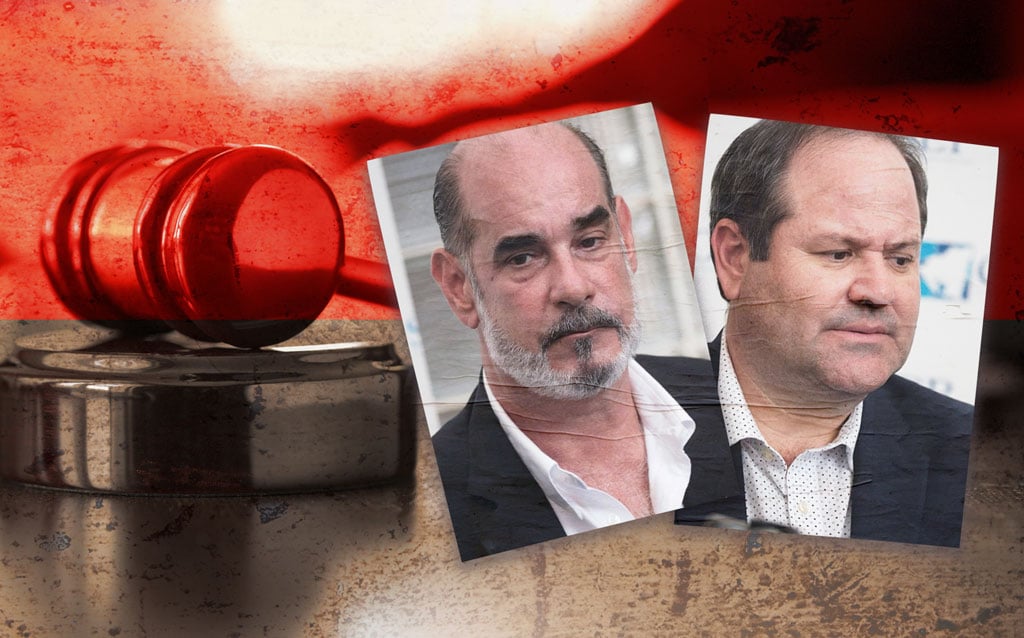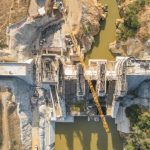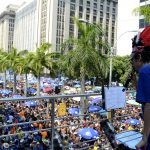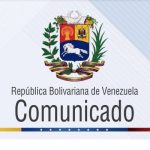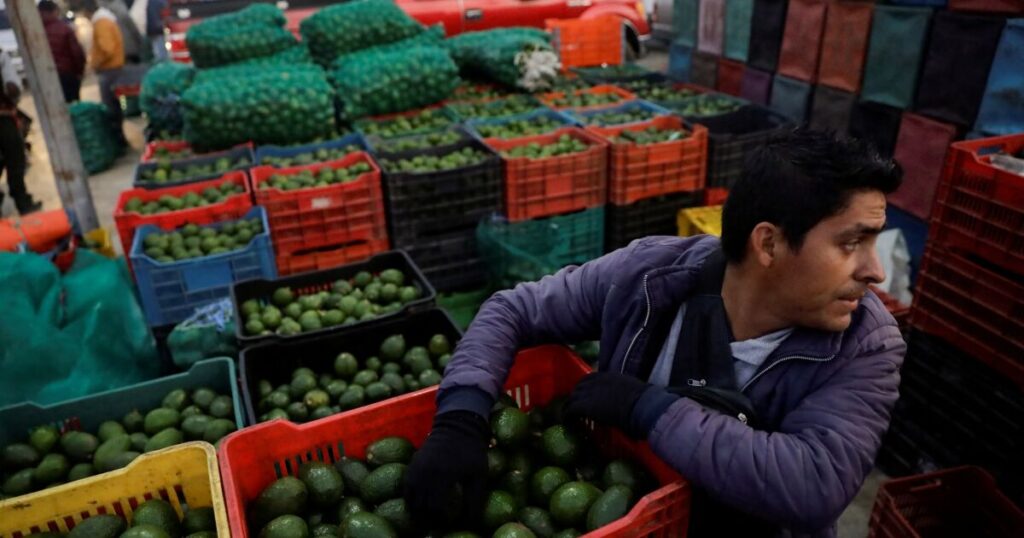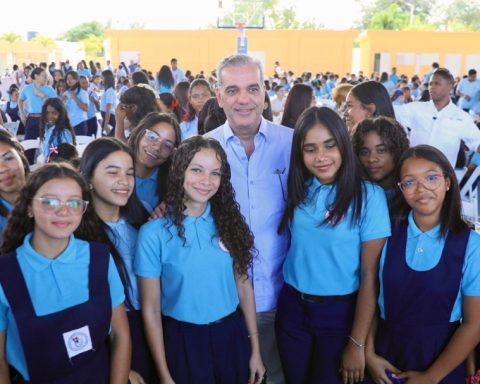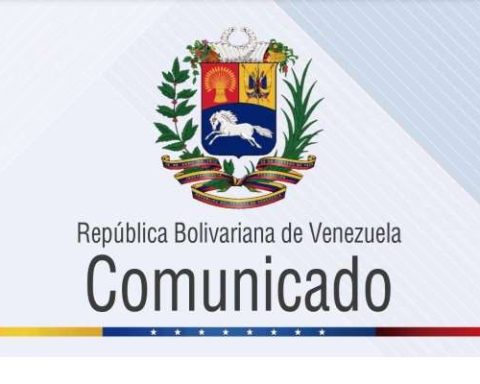The guilty plea by Michael Healy, who became president of the Superior Council of Private Enterprise (Cosep), in September 2020, and its consequent sentence to thirteen years in prison, confirmed this Tuesday, May 10, becomes one more attack against the agricultural businessman, whom the regime had already targeted since mid-2018.
The same day that Healy was captured -Thursday, October 21, 2021- his vice president was also captured, the livestock producer Álvaro Vargas, who had also been president of the Union of Agricultural Producers of Nicaragua (Upanic). Vargas was sentenced to spend nine years in jail. The captures of him generated a wave of continental rejectionamong the business chambers of America.
Healy’s family is distressed to see how much weight he has lost in prison, although they are comforted to find him in good spirits, and more so knowing that he was transferred to the cell where José Adán Aguerri, his predecessor at the head of Cosep, is located. thus occupying the place that was left free when Pedro Joaquín Chamorro was sentenced to house arrest.
Ironically, Healy was captured and convicted despite proposing that Ortega be given a ladder (what later became known as the soft landing), because a dictator has never thrown himself headlong to get down from power, as long as that process guaranteed access to freedom, justice and democracy that Nicaraguan citizens demand.
“This will end with a dialogue. Whether it’s right now, or after a few years of fighting that would destroy the country, so we’d better have a dialogue now,” because that will get us back on our feet faster, he told me in 2018. Healy also knew that while his name was mentioned as presidential candidate, he could not aspire to such a candidacy, because he was also a US citizen.
His mother could not rest in family
In May of that year, armed men who were carrying out orders from the regime of Daniel Ortega and Rosario Murillo, invaded dozens of properties in various parts of the country, including the Chatilla, Santa Lucía and El Zopilote farms, located in Buenos Aires (Rivas), which were owned by Mrs. Esperanza Lacayo de Healy, mother of the union leader, who died in December 2020.
“I suppose they do it to harm Michael, but he has nothing to do with it, because I am the owner, not him,” said the lady in interview with the program This week -which is now only broadcast online, due to the television censorship imposed by the regime- carried out in November 2018, which was later reviewed by CONFIDENTIAL.
To the blow received by this de facto confiscationplus the capture and confinement in prison, and the sentence Ordered by Ortega justice, Healy must add one more blow: that of not being able to bury his mother in the family cemetery, where other relatives rest, including his father and grandfather, as well as a sister, and several uncles.
“The property has been in the family for two centuries. I must be like the fifth or sixth generation” that owns it, Mrs. Lacayo said at the time. It is about 200 blocks of land, planted mainly with sugar cane, but also with bananas, as well as fruit trees, “especially mangoes and coconuts,” said the anti-canal leader, Octavio Ortega.
Ortega explains that the Healy Lacayo family rented the land to the Casur sugar mill, which was in charge of planting, caring for and cutting the cane, for an agreed price that they paid in monthly installments, paying the difference at the end of the year.
“They also planted bananas. It was a well-managed farm, which gave them enough to live comfortably, “he assured CONFIDENTIAL the manager of an agribusiness company who has known Healy since their student days.
“When they invaded the farm, they hacked at the PVC pipe of the irrigation system and threw stones into the pipes of the artesian wells. That was told to me by Mike himself about two years ago. They also macheted part of the banana plantations”, he added.
In the aforementioned interview, Mrs. Lacayo asserted that the invaders sold the cane to a mill in Carazo, and that they also sold the banana and kept the money. In addition, they dismantled the sugar mill machinery they had on the property (which was not in use, but the family planned to open it in 2018), and sold it for scrap. Tractors also disappeared. The losses are incalculable”, she reviewed at the time.
From Aprocari to Cosep
“Of the three farms, Chatilla is the one with the highest value, because it is close to the shore of Lake Cocibolca. In the 1970s, Mike’s father gave Enacal seven wells so that they could extract water, so that they supplied Rivas all the time,” Ortega recalled.
The father of the imprisoned union leader – who was also named Michael Healy – was a veteran of the Korean War. He came to Nicaragua when he married Doña Esperanza Lacayo, and dedicated himself to developing the farm owned by the Lacayo family, growing sugar cane as a colonist of the Dolores Sugar Mill in the 1960s and 1970s until the Revolution, the administrator explained.
Upon his death, Mr. Healy was buried in the family cemetery.
According to sources, Michael is the only one of the children of the Healy Lacayo couple who is still in Nicaragua. Three of his sisters live in the United States: María Esperanza, Jacquelin and Roxana.
Roxana also has a foundation called Christmas Angels, which gives away food, clothes, and toys in a large Christmas piñata to the children of Buenos Aires, according to Mrs. Healy’s story. The fourth sister, named Anabell, died in a traffic accident in 1978, while she was still a teenager, according to the administrator’s version.
In 1990, when Michael returned from exile together with his parents, he took charge of the farm as administrator, returning to cane cultivation, for which he joined the Rivas Sugar Cane Producers Association (Aprocari), where he served as member, secretary and then president of its Board of Directors, between 1991 and 1993, which gave him the opportunity to occupy a chair in Upanic.
Meanwhile, while building the agricultural business, the family increased its collection of valuable objects, with the pre-Columbian archaeological pieces that they were finding, which included ocarinas, painted clay pots and trays, idols and stone figures, as well as the anchor chain of an old ship.
All that was lost, or was stolen or destroyed. Mrs. Lacayo recounted that while she was in the United States, where she went to have a medical check-up, she was informed of the invasion of her property, so she immediately returned to Nicaragua, finding that her house had been looted, and that not only was she They took valuables, but also many of their personal or family memorabilia.
Shortly after, two of his daughters wanted to enter the property, but were surrounded by three masked individuals who pointed their weapons at them. Although María Esperanza begged to be allowed to enter the cemetery to visit the graves of her father, her grandparents and her sister, they did not allow it.
Later, María Esperanza tried to meet with the police chief and the mayor of Rivas, “but they never gave her an appointment, so they had to return to the United States,” said Mrs. Lacayo. The family also reported the crime to the US embassy in Managua, but the results of that complaint are not known.
